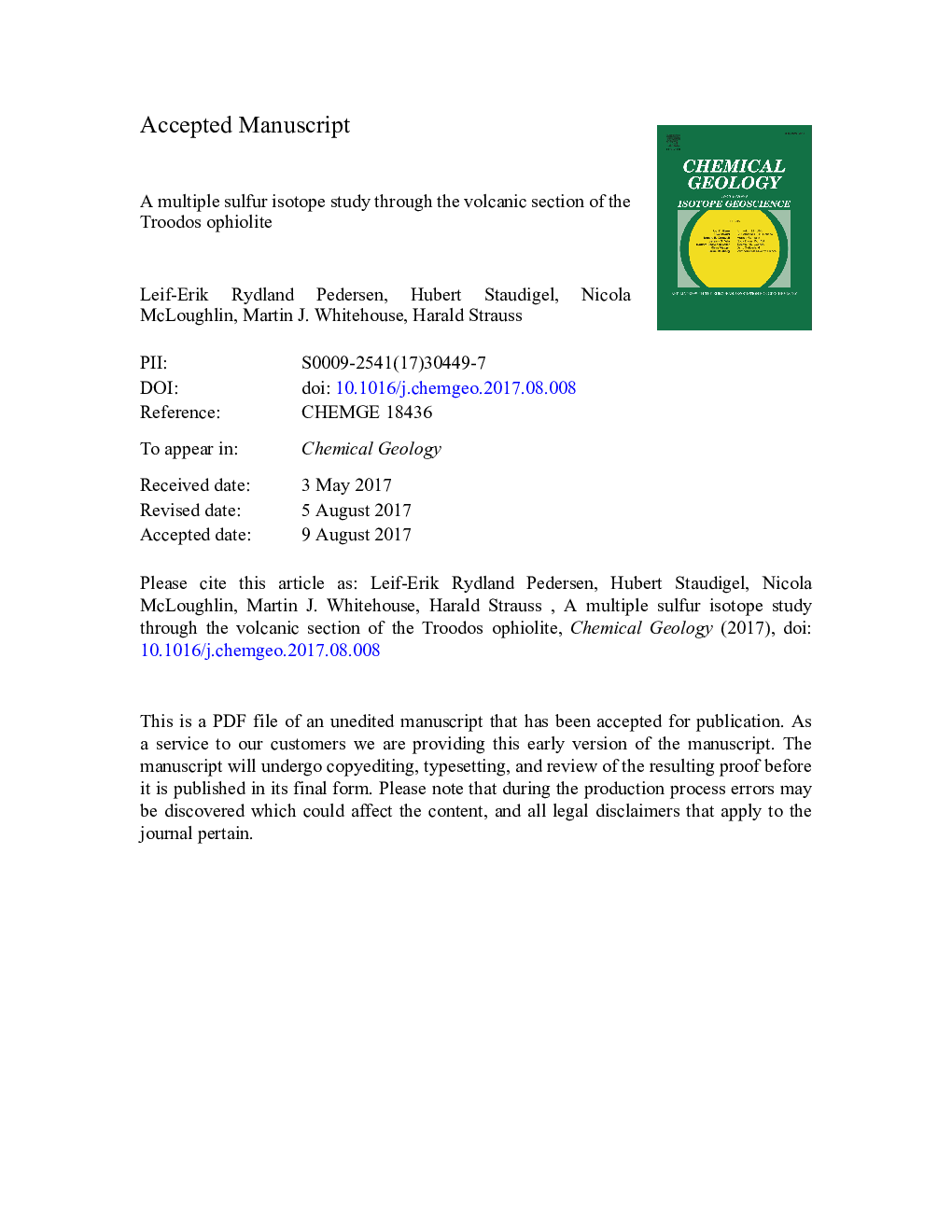| Article ID | Journal | Published Year | Pages | File Type |
|---|---|---|---|---|
| 5782715 | Chemical Geology | 2017 | 41 Pages |
Abstract
The Akaki and Agrokipia volcanics experienced low temperature sulfur loss and removal of heavier sulfur isotopes due to partial oxidation by microbes. While some intervals gained sulfur, and have δ34S and Î33S values indicative of microbial sulfate reduction. REE-data of vein quartz containing pyrite with δ34S = ~â 21â° implies local ephemeral hydrothermal upwelling in the lower Akaki volcanics, possibly associated with the late stage boninitic magmatic activity in the Troodos ophiolite, suggesting that microbial sulfate reduction in oceanic crust may continue for 10-15 Ma in crustal sections with prolonged igneous activity such as Troodos.
Related Topics
Physical Sciences and Engineering
Earth and Planetary Sciences
Geochemistry and Petrology
Authors
Leif-Erik Rydland Pedersen, Hubert Staudigel, Nicola McLoughlin, Martin J. Whitehouse, Harald Strauss,
